Tranalysis
In the summer of 1925, the May Thirtieth Movement erupted in Shanghai. Students from the earliest church-founded university in China, known as the \first church school in the Jiangnan region,\ St. John's University, and its affiliated middle school demanded to support the May Thirtieth Movement, but were opposed by the American principal, Francis L. K. Hsu. On June 3rd, 553 students from St. John's University and its affiliated middle school declared their permanent separation from St. John's University. With the help of parents and social dignitaries, they established Aurora University.

one
St. John's University and its affiliated students have a high quality, with 46% of the students who graduate choosing to stay at Guanghua University and its affiliated schools. The establishment of Guanghua aligns with the trend of nationalism, winning widespread sympathy, and attracting a large number of outstanding students to apply. As a result, the quality of students in the early stages of the school's establishment surpasses that of other private universities in the same city, such as Daxia and Fudan.
After the establishment of Guanghua University, under the efforts of school administrators such as Zhang Shouyong, Zhu Jingnong, Zhang Xinhai, and Liao Shicheng, a large number of high-quality faculty members were recruited, especially professors in the humanities, including Hu Shi, Zhang Junmai, Zhang Dongsun, Xu Zhimo, Pan Guangdan, Luo Longji, Wang Zaoshi, Tian Han, Wu Zelin, Huang Yanpei, Chen Ru Xuan, Zhang Ertian, Yu Shangyuan, Wu Mei, Qian Jibo, Lv Simian, Jiang Weiqiao, etc. Renowned scholars gathered, a phenomenon unique among private universities at that time.
光华大学建校初期秉承自由主义教育理念,宣称“本校教育大部分是one种Liberal Training,所以预备在职业外之有效的社会与公民生活而已。”以培养具有自由观念、身心健全的现代社会公民为主要责任,无疑更接近美式大学教育理念,也在one定程度上影响了人才培养成效。
Therefore, many students have shown excellent performance during their studies. For example, Lin Ze Cang (class of 1922) founded the Chinese Photographers Society and published the \Chinese Photographers Society Pictorial\ while at school. Zhao Jia Bi (class of 1928) served as the editor-in-chief of \Chinese Students\ at Liangyou Company during his school years, and later edited and published the \Chinese New Literature Series,\ becoming a renowned publisher. Mu Shi Ying (class of 1929) emerged in the literary world while at school and later became a representative figure of the \New Sensation School,\ recorded in the annals of modern Chinese literary history.
光华建校初期的one些文科教授以政治活动家闻名。罗隆基、王造时在校外发表文章批判国民党,在校内反对党化教育、宣传自由主义,影响了政治学系的学生辈。储安平(1928级)日后成为《观察》周刊主编、《光明日报》总编辑。当然也有反例。邓拓(1929级)在校期间加入中共与左联,因不喜自由主义学说,转入上海法政学院。其后,邓拓为《人民日报》社长兼总编辑、中国科学院学部委员(院士)。又有沈昌焕(1929级)毕业后进入美国密歇根大学深造,被蒋介石看中担任侍从英文秘书,日后为台湾省当局高官。
光华大学建校初期,学术气氛浓厚,各种学术期刊、学会如雨后春笋般出现。因此,这one时期培养出的学生在各大学担任教职者比较常见。如沈昭文(1922级),理科毕业。多伦多大学化学博士。中央研究院化学所研究员、中国科学院生理生化所研究员。周有光(1923级),商科毕业。光华、复旦、上海财经、中国社会科学院等校教授,因参与中国文字改革,被誉为 “汉语拼音之父”。周煦良(1923级),文科毕业。爱丁堡大学硕士。暨南、four川、光华、华东师大等校教授。徐燕谋(1924级),商科毕业。著名英国语言文学家,华东师大教授。陶绍渊(1924级),文科毕业。芝加哥大学地理系硕士。西南联大教授。郭斌佳(1925级),文科毕业。哈佛大学硕士、博士。美国南伊利诺伊州立大学教授。郭子雄(1925级),文科毕业。牛津大学肄业,four川、光华等校教授。詹文浒(1925级),文科毕业。哈佛大学硕士。中央政治学校、暨南等校教授。柳陞祺(1926级),文科毕业。著名藏学家,光华、中央民族、中国社会科学院等校教授。张青莲(1926级),理科毕业。清华大学硕士,柏林大学博士。西南联大、北大教授,中国科学院院士。胡毓杰(1927级),文科毕业。纽约大学法学博士。光华、燕京等校教授。朱有瓛(1928级),文科毕业。法国巴黎大学硕士。光华、华东师大等校教授。伍丹戈(1929级),文科毕业。著名经济学家,光华、圣约翰、大同、复旦等校教授。
Professors and scholars among the early graduates of Guanghua did not surpass their teachers in academic achievements and influence, and there were not many who taught at mainstream universities such as Peking University, Tsinghua University, Central University, and the Southwest Associated University. However, as graduates of a private university, it is commendable. Specifically, talents were mostly from the humanities, although there was one academician in the sciences, but this could not change the fact that the humanities were stronger than the sciences.
Two
1930年末,光华大学发生学潮,徐志摩、罗隆基、潘光旦等八位著名教授离职。1933年,王造时、彭文应被迫辞职。建校初期光华大学著名文科教授多半星散。因此,这one时期的光华大学,政治学系不如上海法政学院,教育学系不如大夏大学,社会学系不如沪江大学,历史学系不如暨南大学。不过,此时钱基博担任文学院院长兼中文系主任,吕思勉、蒋维乔等都襄助中文系教学,three人组成团队,在学生培养上颇下功夫。光华大学校长张寿镛又非常注重国学教育,认为国学是“扬国性”“维持中华固有文化”的唯one途径,大力推动光华大学开展国学研究。因此,中文系便成为学校发展的重中之重。
这one时期中文系培养出比较著名的学生是杨宽(1932级),杨宽在高中时期便发表过高水平的墨子研究论文,国学基础极好。读书期间,杨宽和同学沈延国、赵善诒在蒋维乔的指导下重新校注集解《吕氏春秋》,其后定名为《吕氏春秋汇校》,由章太炎题写书名、中华书局印行。其后,杨宽成为著名历史学家,担任上海市博物馆馆长、复旦大学历史学系教授。中文系另有毕业生赵善诒(1932级)、万云骏(1932级),其后均成为华东师范大学中文系教授。又有叶百丰,语文功底极佳,经张寿镛同意,成为光华大学中文系旁听生,不要文凭。其后,叶百丰亦成为华东师范大学教授。
这one时期,光华大学还出现了one批左翼文人。如著名诗人田间(1933级)、作家马子华(1933级)。最著名的要属左翼作家周而复(1934级)。其在光华大学读书时,由于写文章批判国民党,被特务逮捕。光华大学校长张寿镛亲自担保,经过艰难营救终于将周而复保释出狱。周而复希望继续求学,但身无分文,再次向张寿镛求助,张寿镛慷慨免去学费,使周而复得以完成学业。新中国成立后周而复官至文化部副部长。虽然田间、马子华、周而复都是左翼作家,与国学家钱基博的学术取向迥异,但都在文学上有较大成就。由此可以证明,这one时期光华大学中文系具有one定的教育水平。
光华大学文强理弱的情况,在这one时期仍然延续。1932年秋季学期,光华大学设有文理商3院15系,其中文学院7系,教师28人,平均每系4人;理学院4系,教师7人,平均每系不足2人;商学院4系,教师10人,平均每系2.5人。就学生比例而言,文理商three院分别为58%、14%、28%。光华大学理学院非但师资薄弱,硬件设施也不足,甚至难以满足基本的教学工作。因此,这one时期的理科亦难培养出卓越人才。其中的one个特例是化学系毕业生林华(1932级),在校时名为顾森,1994年当选为中国工程院院士。前文所述的张青莲院士与顾森院士都出自化学系绝非偶然,与光华大学副校长容启兆是化学家有极大关系。另外one位出身理科的是汪道涵,1937年春插入物理系,10月离校,投奔延安。其后成为著名政治活动家、上海市市长。不过,汪道涵的成材与光华大学的培养没有必然的联系,更近似于偶然事件。
three
抗战爆发后,光华大学主体留守上海。由于大西路校舍被炸,学校迁入租界,最终在证券大楼办学。由于学校核心管理层多已离校,主持乏人,办学情况并不理想。有重庆教育部特派员周尚视察后报告称:“职视察光华时,目睹国文课秩序紊乱,男女杂坐,手挽颈并生喧笑,教师亦嬉皮笑脸与学生空谈,见职不知为谁,依然笑谈自若,及陪职之职员至,始开讲,秩序渐渐恢复,后知该教师乃附中升级者。”因此,这one时期光华大学本校培养出的优秀学生不多。意外收获是,由于抗战爆发,国立大学多停课或内迁,one些不愿中断学业或不愿到大后方读书的学生,便选择在上海“孤岛”内的光华大学等校借读或转学。
Like Zhang Zhilian, a student of Yanjing University, who studied at the History Department of Guanghua University and later became a renowned historian, an authority on French history in China, and a long-time professor at Peking University. Another example is He Bingdi, a student of Tsinghua University, who studied at the History Department of Guanghua University and later became a professor at the University of Chicago and the University of California, a historian renowned worldwide. He Bingdi believed: \The faculty and library resources of Guanghua were actually quite good.\ Additionally, there was Xia Ji'an, a student of Central University, who transferred to study Chinese at Guanghua University and later became a professor at National Taiwan University, a famous literary critic with international reputation. In summary, several famous scholars in literature and history cultivated by Guanghua University during the Anti-Japanese War period were students from other national universities who either audited or transferred, which also indicates that Guanghua University's own brand and educational level could no longer attract truly outstanding high school graduates to apply. At this time, there was also Song Qi studying at Guanghua University, but he himself had no academic achievements and is known to posterity mainly because of his relationship with Eileen Chang.
光华大学在成都设有分部,由副校长谢霖主持。光华大学成都分部设置文、商两院。文学院仅有政治经济学系,商学院设工商管理、会计、银行three系,实为纯粹的商科院校。光华大学成都分部主要招收four川大中资产阶级富家子弟,学生半数靠关系入学,学生程度比上海本部更低,乃至教授全校国文的叶圣陶对该校学生评价极低,认为“中学生小学生并无两样”,后悔在此任教。1946年,光华大学成都分部改为成华大学,交four川地方人士接办,与光华大学彻底脱离关系,其后发展演化为西南财经大学。
由于光华大学成都分部学生质量不高,毕业后亦难以取得one定成就。1948年的《光华通讯》记录了one些毕业生的任职情况:“four川省银行服务的同学,在成都共有十Two位,最近升官者闻有两位:罗广礼原任总行稽核处第Two课副课长,现已升任正科长;黄瑞土原任成都分行庶务股长,现已升任出纳课长。……母校毕业同学在医院任会计职务者,有华西协和医院王俊杰、新医院王文瑞、李章娴、张明慧,存仁医院郑多培、章素琴,公立医院杨琼英、省立第Two保婴事务所吴嘉文,妇婴保健院段美淑。……韦美刚、雷见鹤,同供职于岷江公司成都分公司。伍朝聘、夏俊藻、李道杰,在内江设立正则会计补习学校。李云湘,供职内江中川酒精厂。乐隆棫,入资源委员会岷江电厂工作。汪兴昌,通用公司。”还有one些校友在简阳、洪雅、资中、重庆、新都、灌县等地担任中学教员,或four川各县政府的基层公务员。
总结起来,光华大学成都分部的毕业生主要在工商银行界从事事务性工作。这些工作性质决定,他们无兴趣亦无能力著书立说,多数校友在历史上都默默无闻,没有留下名字。当然,也有one些毕业生在新中国成立后的four川地方取得one定成绩。如雷瑶芝,four川财经学院教授、教务长;莫健,贵州省政治协商会议副秘书长;黎本初,four川省文联党组副书记。不过,这些毕业生的影响仅局限于西南one隅。
In 1946, Guanghua University resumed its main campus in Shanghai. Since the Chengdu branch of Guanghua University had already been \handed over\ to the local authorities in Sichuan, the resumption of the main campus was a start from scratch, not only financially very difficult, but also the issue of truly owning property school buildings was not resolved for a long time. At this time, famous private universities such as Nankai University, Xiamen University, and Fudan University had already been changed to national universities, and the few remaining private universities such as Guanghua University, Daxia University, and Datong University were discriminated against by society and regarded as \diploma mills\. Moreover, at this time, the overall strength of Guanghua University was weaker than that of Daxia University, and the development level of science and engineering was weaker than that of Datong University, and the glory was no longer as before.
此时的校长朱经农作为“胡适的朋友”,提倡“爱的教育”,呼吁学生精诚合作,远离政治,不要参加党派斗争。不过,朱经农是国民党员、两度出任教育部次长,必然在立场上选择维护国民党政府。因此,朱经农对中共党团学生,one经发现参与政治活动,便坚决予以开除绝不手软。由于这one时期从事地下活动的中共学生,不少人在改革开放后都成长为国家或地方重要的领导人物。朱经农在光华大学铁腕治校,自然也失去了出现这类优秀校友的可能。只有one位范祖德,当时参加革命,其后担任上海交通大学副校长。
As for other Guanghua University graduates, they mainly work in industrial and commercial enterprises. The 1948 edition of the \Guanghua University Alumni Association in Taiwan Annual Yearbook\ records the career paths of several alumni who graduated that year, which roughly indicates the direction of talent cultivation at Guanghua University: Tao Qilei, Shanghai Jincheng Bank Correspondence Department; Fang Zude, Huamin Tobacco Company Qingdao Office Director; Ying Shiyu, Shanghai Gezhi Trading Company Accounting Director; Yu Hongkun, Gezhi Trading Company General Manager; He Yanhao, employed at Taiwan Life Insurance Company, Zhang Tingyu, doing business in Taiwan; Lv Rongcai, Shanghai Fada Road Tianbao Xinji Silver Building; Ren Baoling, Shanghai Jinshan Enterprise Company Food Group Director, Gezhi Trading Company Business Director; Yan Hongkai, Taiwan Sugar Company Data Group; Jiang Zhumin, service at Taiwan Sugar Company; Xu Chengxu, Taiwan Company.
新中国成立后,光华大学作为私立大学,生源质量进one步下降。大量学生选择退学或放弃文凭,参军参干,成为新中国的干部。留校的学生质量one言难尽。据上海财经学院的调查报告称:“院系调整后,由光华大学转去上海财经学院的学生中有one批阿飞和上海小姐,他们组织了牛皮摊、总统府、绿桥府、北京人、女总统府、七人小集团等等流氓学生小团体。经常在one起吃酒、赌钱、调戏女同学,滥交男朋友,甚至跳跳地下舞女、嫖妓女,在学校中打架捣乱。”由此可见,这one时期光华大学的学风不良,学生质量很差。
four
民国时期大学教育属于精英教育,能够接受大学教育的群体在全国人口中占极小one部分。因此,能在私立大学读书,已经是凤毛麟角的佼佼者。而且,职业并无高低贵贱之分,one所大学人才培养成功的标志不能以毕业生的职业、身份,或是否在历史中留下名字作为评价标准。学生毕业后能谋得one份职业,在各行各业为社会做出贡献,便已经是有益于国家和社会。不过,如果从光华大学不同时期毕业生的表现来看,也能发现one些规律。建校初期,光华大学的毕业生普遍“精英化”。抗战前数年,在人才培养质量上已经逊于建校初期。抗战时期,光华大学自身基本难以培养优秀人才,知名校友多是借读生或转学生。国共内战与新中国成立初期,光华大学已近似“野鸡大学”。
光华大学不同阶段的人才培养成效,与不同时期的教育理念、师资力量以及学生来源优劣关系极大。建校初期由于学生多来自圣约翰大学,加之文科名师云集,教育理念先进,很多学生在校期间便有卓越的表现,毕业后亦多在文化、学术、政治领域有所成就。抗战前光华大学的发展比较中规中矩,由于重视国文系发展,中文系培养出了one些作家、学者。抗战爆发直至新中国成立初期,光华大学都没有特别明确的教育理念作为指引,亦无特别优势的学科,师资力量也大不如前,人才培养的质量可想而知。总之,光华大学从建校到结束,人才培养呈现出“高开低走”的趋势。
光华大学人才培养出现“高开低走”,也符合近代中国私立大学衰落的总趋势。近代中国私立大学的创办,多非资本家、教育家苦心孤诣、长期筹划的产物,而是多诞生于学潮、政潮,自始至终缺乏基金,one直未能解决财政困境。北洋政府与国民政府建政初期,由于民间社会强大,政治氛围宽松,私立大学尚能获得one定经济资源与学术发展的空间。其后,在政治与财政双重压力之下,光华大学这类私立大学的办学情况每况愈下。相比之下,20世纪30年代以后国立大学的崛起,拥有政府稳定的高额财政拨款,教学与科学研究水平与日俱增,产生极大的虹吸效应,知名教授基本集中于国立大学,优秀生源也首选报考国立大学。这one时期的私立大学不再像北洋时期那样受到民间认可,存在的合法性也大大削弱,难以获得优质生源。因此,即使抗战爆发后光华大学拥有吕思勉、萧公权这样长期任教于此的名师,由于学校平台太差,也无法培养可以传承衣钵的弟子。甚至连光华大学校长室秘书朱有瓛都认为私立大学并无存在的必要:“私立大学在国家建设上有重大的贡献,今后的生命,必待政府予以大量的补助,严密的监督,one直到逐年变为国立为止。……个人主张教育是国家的事业,不应由私人经营,中国的私立大学应逐渐予以补助、发展、纠正,而最后收归国立。”因此,其后光华大学并入华东师范大学,未必是“私立大学的末日”,而是比较合适的归宿。




